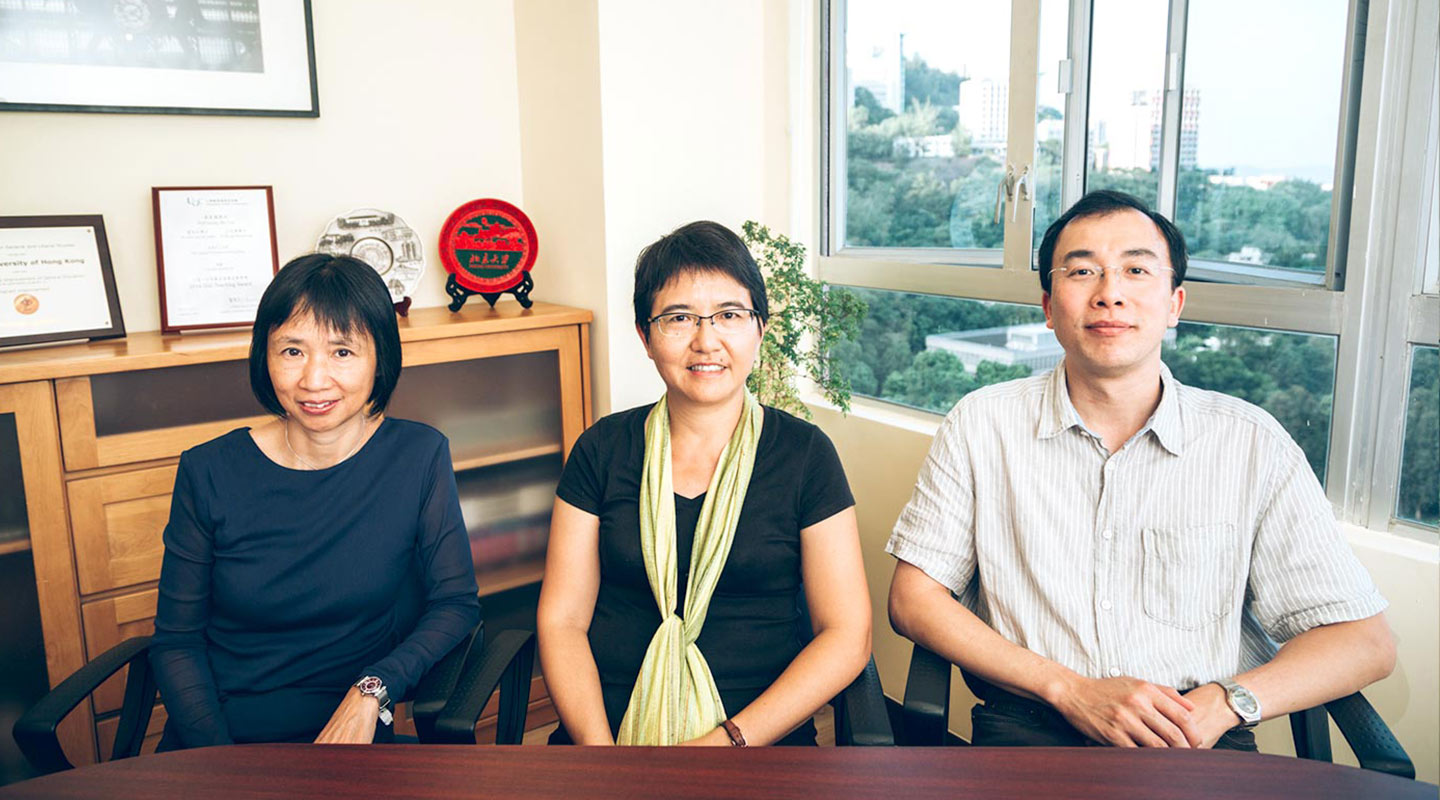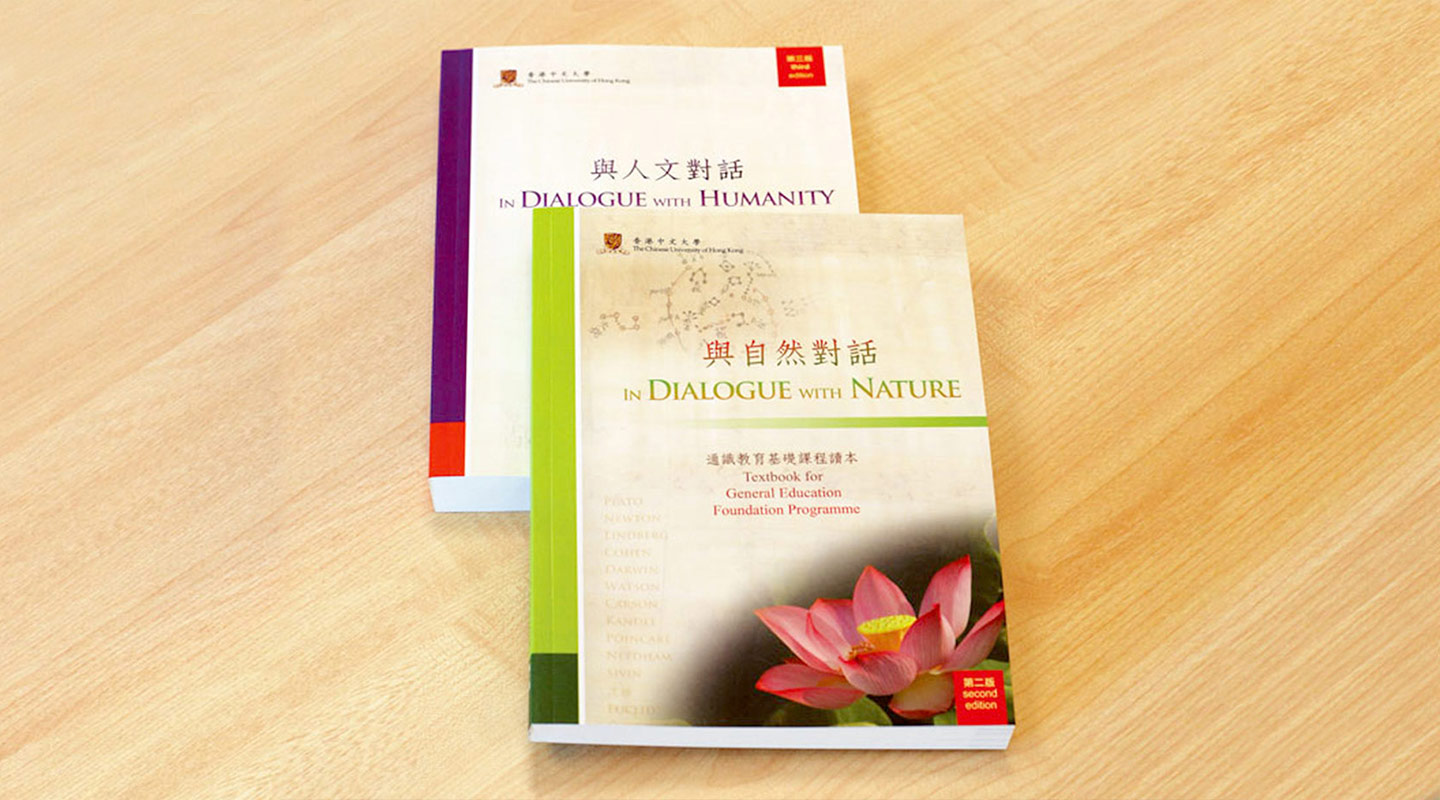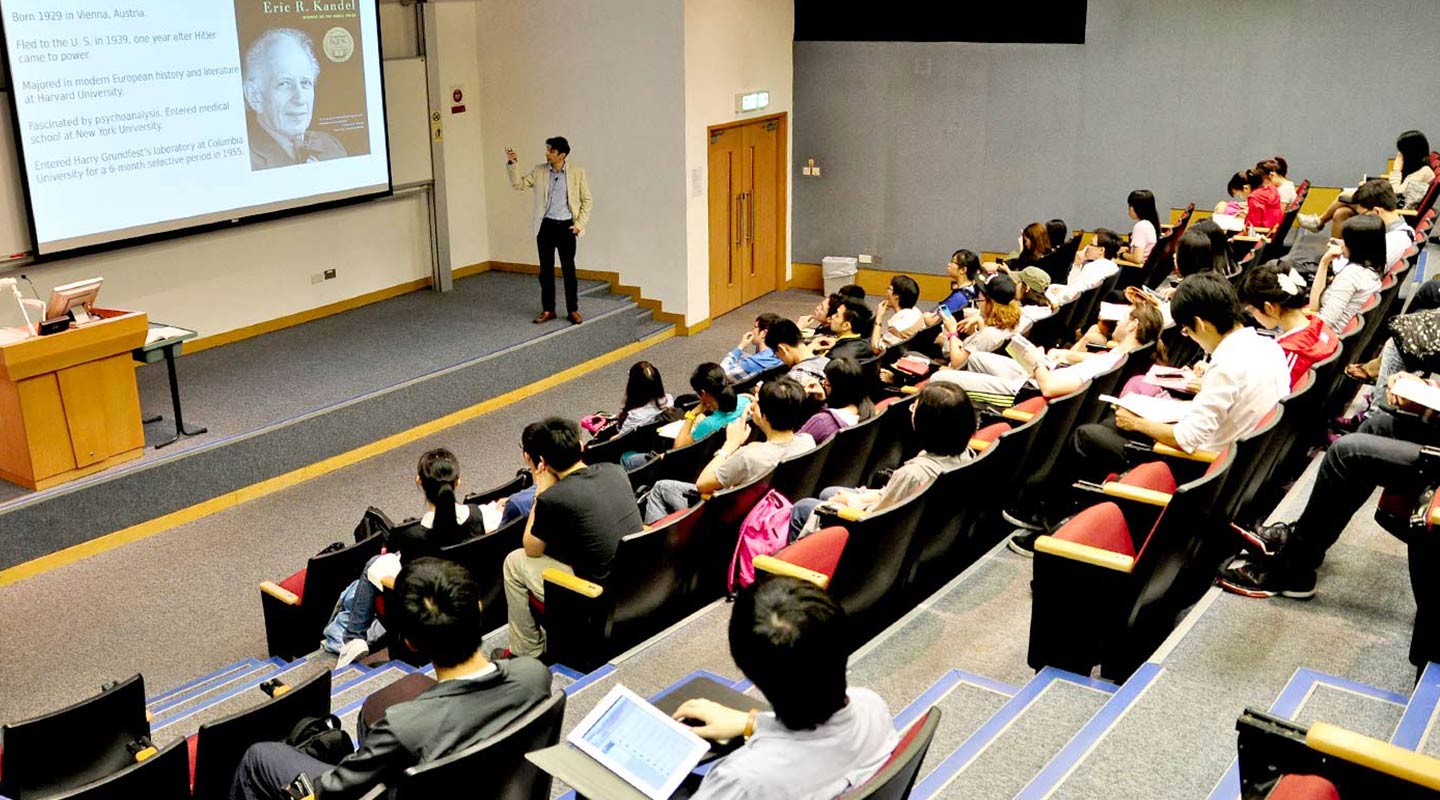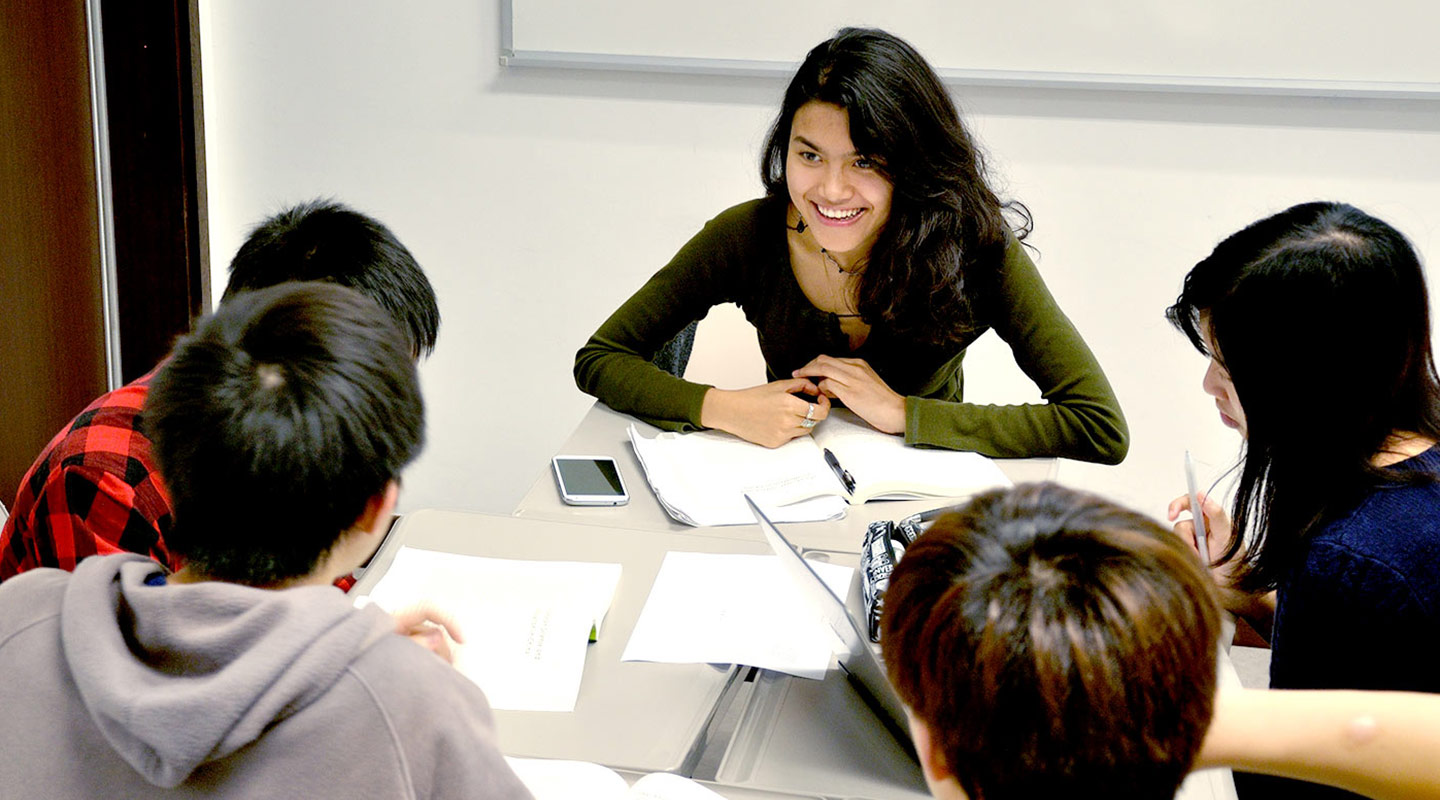Dear readers, With the launch of e-newsletter CUHK in Focus, CUHKUPDates has retired and this site will no longer be updated. To stay abreast of the University’s latest news, please go to https://focus.cuhk.edu.hk. Thank you.
Creating a Love of Knowledge for Its Own Sake
CUHK generalists talk about CUHK general education

What does an applied mathematician studying towards a PhD share in common with a biologist keen to combat cancer or arts students who just want to express themselves?
Well, at The Chinese University of Hong Kong, quite a lot. They have a shared educational experience in their first and second years that involves six credits of a core curriculum in two semester-long courses: In Dialogue with Nature, and In Dialogue with Humanity. The concept is to create a shared educational experience that unites undergraduate students and, effectively, teaches them how to think.
The nature component examines the scientific method and how human knowledge has evolved in the sciences. That starts with Plato’s Republic and moves through Newton’s The Principia and Darwin’s On the Origin of Species to thinking by modern minds, such as Dunham’s The Mathematical Universe.
The humanity class stresses philosophy, faith and the development of society. That begins with a focus on thinking from the planet’s earliest ‘deep thinkers’ such as Homer’s Odyssey, Aristotle, Confucius and Zhuangzi. It progresses through to texts such as The Social Contract by Rousseau, Adam Smith’s The Wealth of Nations, and the works of Marx. On the way, students also study the Bible and the Koran.

In a way, the new core curriculum is a flashback to the very earliest days of universities themselves, centuries ago. They were originally viewed as institutions that would treat their students simply to explore knowledge for its own self, and develop a broad appreciation of many disciplines.
Somewhere along the way, though, many universities switched tack and became more focused on career-defining individual disciplines, more pragmatic courses designed to prepare students for the working world.
The core curriculum goes back to education’s roots to encourage students to ‘think broadly’ as well as to examine their own identity. Most of all, the courses create a shared sense of community across the University.
‘We lead them to think about big questions of common concern: What is a good life? What is a good society? What do we know about nature? What is the limitation of this knowledge?’ Leung Mei-yee, the director of University General Education, says.
The impetus for the courses has come from Leung, aided and abetted by Julie Chiu and Wong Wing-hung, senior lecturers and associate programme directors. They drew on similar core-studies schemes at Columbia University in New York, St. John’s College in Santa Fe, and the University of Chicago.

It had a soft launch in 2010 after a year’s pilot test, and then a full launch across the University in 2012. Around 3,800 students participate each year, reading common texts and taking part in seminars with 25 students or fewer.
Those sessions bring together people from all walks of life and interests. It also unites people from different cultural backgrounds who tackle those broad thoughts in different ways. ‘The questions are common, but the answers are not,’ Leung says.
The Koran is a particularly difficult text to fathom, some students say. But when asked if it’s too hard to study and should be removed, they insist that it is vitally important to study the book in today’s fractured world.
Initially, the educators were concerned that there might even be student protests over the mandatory courses. But they took to the classes surprisingly well, although the workload is heavy.
The students ‘recognize the importance of reading and education,’ Leung says. When it comes to medicine, for instance, ‘we like to say we educate doctors – we are not producing doctors.’ Computer scientists improve their oral presentation, having in general not wanted to take part.
‘The course makes me think, should we take the development of science and technology for granted?’ one student said. Another student was ‘extremely scared’ of science subjects but came to learn to apply the basic principles in daily life.
Chiu says the adoption of the core curriculum also helps shape a student’s interests while at university. Humanities students did not initially understand the reasoning behind forcing them to take an exploration of science. But they showed the greatest improvements in their learning outcome in all courses.

‘It’s a way of understanding your likes and dislikes and understanding yourself,’ she explains. If engineering students, for instance, hang out only with engineers in their department, ‘that’s just one way and approach to knowledge, and also one approach to the people around them.’
CUHK won the 2016 teaching award from the University Grants Committee as a result of the ‘excellent design’ of the general education programme. Leung, Chiu and Wong were highly commended for their vision and leadership.
The Association for General and Liberal Studies also lauded the scheme, granting it the 2015 Exemplary Program Award for improving general education. Leung and Chiu travelled to Wisconsin to receive the prize at the organization’s annual meeting. CUHK became the very first winner in its new international category.
Wong notes that the parents of current students, many of them alumni, have expressed an interest in taking the courses themselves. ‘How come we didn’t have this when we were at university?’ is a common question.
The general education programme would now like to develop the classes as Massive Open Online Courses, or MOOCs, that many people could take, particularly in China. The teachers also see the benefit of travel to the birthplace of Confucius in Shandong, China, to Greece, or to NASA, to explore some of the ideas practically.
The problem is, as ever, one of resources. Students were originally asked to write a weekly reflection. While that put quite a load on students, it was even more of a burden for the instructors.
‘That was unrealistic, and unreasonable for the teacher,’ Leung says. With field trips or online courses, ‘our teachers are now really fully loaded. How can we spare manpower to explore these two different directions?’
By Alex Frew McMillan
This article was originally published on CUHK Homepage in Nov 2016.